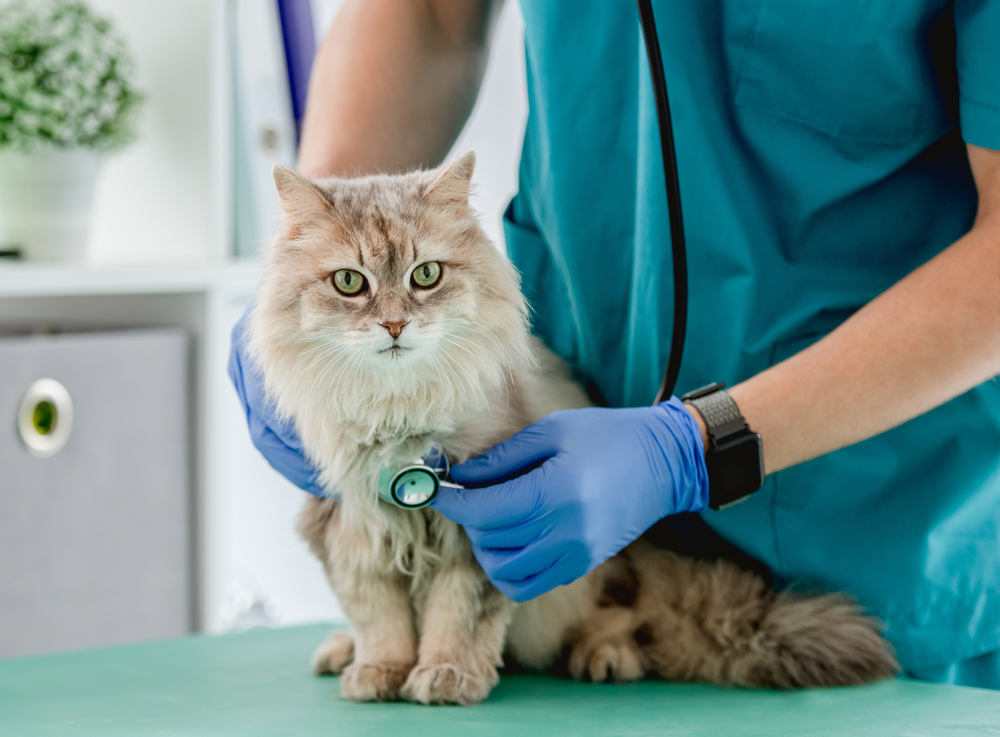
Assessing and Improving Senior Pet Quality of Life
As much as we wish, pets don’t live forever, and because of their relatively short lifespan, we see them getting older every day. Pets are more prone to health problems as they age, and may develop chronic or terminal ailments, including kidney or liver disease, heart disease, arthritis, diabetes, Cushing’s disease, or cancer. Chronic disease, or treatment side effects, can make pets feel unwell and impact their overall quality of life (QOL). Some pets with chronic disease can live happily for many years, while others will suffer, despite treatment. Harbor Pines Veterinary Center wants you to have the tools to assess your senior pet’s quality of life, so you can spot changes sooner, and discuss them with your veterinarian.
How to assess quality of life
Your pet’s QOL depends on multiple intertwining variables that change over time. Your senior or chronically ill pet may have a bad day, and then a good day, so you must assess QOL frequently to watch for trends. You should consider each of the following categories when you evaluate your pet’s QOL, and assign each category a score, to objectively track changes over time. A low score in any category can mean your pet is suffering, despite an acceptable overall score.
- Pain — Uncontrolled pain can arise from many sources that cause suffering. For example, painful conditions such as arthritis, tumors, eye conditions, and severe dental disease can lower QOL, although pain medications and other treatments can help control pain.
- Breathing — Breathing is necessary for life, so pets who struggle generally have low QOL. Breathing can be compromised by heart conditions, or cancer that spreads to the lungs.
- Nutrition and hydration — Chronic disease often causes weight loss, dehydration, nausea, and poor appetite. Pets who don’t eat generally feel unwell, and may have a low QOL. Subcutaneous fluids, tube feeding, anti-nausea medications, and appetite stimulants may help.
- Hygiene — Sick pets may frequently soil themselves and therefore have chronically poor skin and coat condition. Cats may be unable to groom themselves. QOL can remain high in this category if you devote the necessary time to keep your pet’s skin and coat clean, dry, and free of parasites or mats.
- Behavior and engagement — If your pet’s demeanor has changed and they no longer seek attention or spend time with you, their QOL may be low. Try to remember what your pet was like before their illness, and consider whether they can still enjoy previous activities.
- Mobility — Can your pet move around the house well enough to get to their food, water, and bed? Is moving painful? You can use wheelchairs, slings, toe grips, and strategically placed rugs to improve your pet’s mobility, keeping them on one house-level to ensure they stay close to their necessities.
- Good versus bad days — Try using a calendar to mark off each day as good or bad. More bad days than good may indicate that QOL is dipping.
What to do if your pet’s quality of life is low
Contact your veterinarian to discuss your pet’s condition, and whether they have any viable treatment options. Your veterinarian is an objective source who can help you determine if your pet is in pain, if treatment could improve their condition, if household changes could help, or if it’s time to consider humane euthanasia. Have an open, honest discussion about your goals, values, and finances, and consider potential treatment success rates, costs, and side effects. If you pursue additional treatment, assess your pet’s QOL frequently to ensure they’re getting better, not worse. If your pet’s QOL remains low and your pet has more bad days than good, talk to your veterinarian about hospice care or euthanasia. Nobody wants to make that choice, but humane euthanasia can be your final gift to your pet to relieve their suffering.
Many pets develop health conditions as they age, and a quality of life assessment can help you determine next steps. We’re pet owners, too, and we understand the turmoil a pet illness can cause. If you’re concerned about your senior pet’s quality of life, or want to discuss hospice care or euthanasia, call us to schedule a consultation with our Harbor Pines Veterinary Center team.

